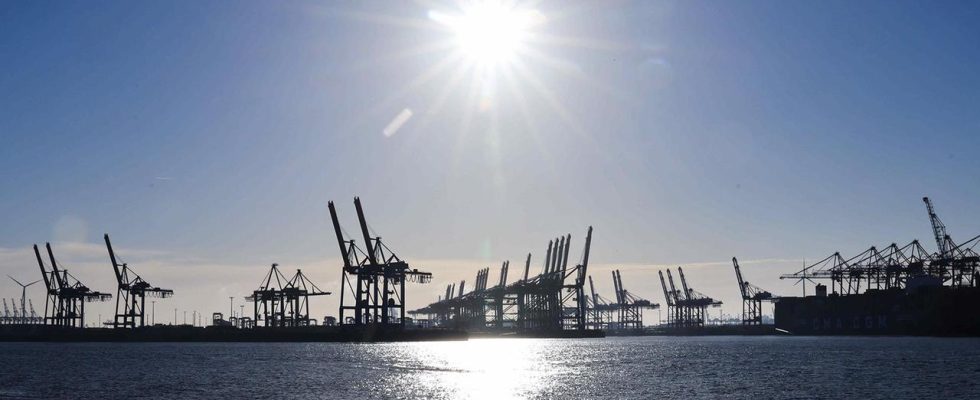According to the Ifo Institute, the German economy may still be able to avoid a recession – even if only by a narrow margin. The business climate rose surprisingly sharply in March.
The mood in the German economy improved surprisingly significantly in March. The ifo business climate rose by 2.1 points to 87.8 points in March, as the Munich institute announced today in its survey of around 9,000 managers.
After the second increase in a row, the most important leading indicator for economic development is as high as it was last summer. Analysts on average had only expected a slight increase to 86.0 points.
“Silver lining on the horizon”
“The German economy sees a silver lining on the horizon,” said Ifo President Clemens Fuest. “The companies are still a bit away from optimism,” he warned at the same time. Because the order backlog continues to decline. The outlook remained bleak.
Nevertheless, according to the Ifo Institute, a recession may still be avoided – but only by a narrow margin. “The business climate signals stagnation in the first quarter,” said ifo expert Klaus Wohlrabe. At the end of 2023, Europe’s largest economy had shrunk by 0.3 percent. A second negative quarter in a row would mean a technical recession.
“We’re coming out of the basement,” says Wohlrabe. “But you shouldn’t fall into euphoria straight away. The economy is still a long way from being optimistic. But it is gaining hope again.”
Delivery bottlenecks are decreasing
The business climate brightened in all economic sectors examined – for example among service providers, construction and industry. The manufacturing industry has improved in all core sectors, from mechanical engineering to the particularly energy-intensive areas, said Ifo survey director Wohlrabe. One reason for this is that export expectations have increased.
In addition, the uncertainty has reduced. “Delivery bottlenecks have decreased – despite many strikes and the crisis in the Red Sea,” said the expert. Although this led to occasional delays and production losses, these had no impact on the overall economy.
In retail, too, companies were less pessimistic. Retailers are “counting on consumers opening their wallets a little more in view of strong wage increases coupled with falling inflation,” explained Wohlrabe. Companies in all sectors assessed their current business situation and the prospects for the coming months more favorably than recently.
Some experts more pessimistic
While the ifo Institute expects the economy to stagnate, other experts see the growth prospects in the current quarter as bleaker. Some expect the German economy to continue to shrink despite the improved situation. Dekabank chief economist Ulrich Kater spoke of “tender spring feelings” in the economy. But the mood remains depressed. “The reasons are, on the one hand, the still weak demand for consumer and capital goods, and on the other hand, the perceived economic policy standstill in Germany.”
Commerzbank chief economist Jörg Krämer is somewhat more confident. The unexpectedly strong increase gives hope, said the expert. The dampening effect of the recent massive increases in interest rates and energy prices is beginning to wear off. “But an end to the recession in the summer should not be confused with a strong upswing,” the economist put it into perspective. “In the background, the long-term erosion of the quality of the location, which the federal government is not addressing decisively, is dampening the situation.”
The economy is currently in an economic trough due to falling investment and a lull in construction. The gross domestic product shrank by 0.3 percent from October to December 2023 compared to the previous quarter.

